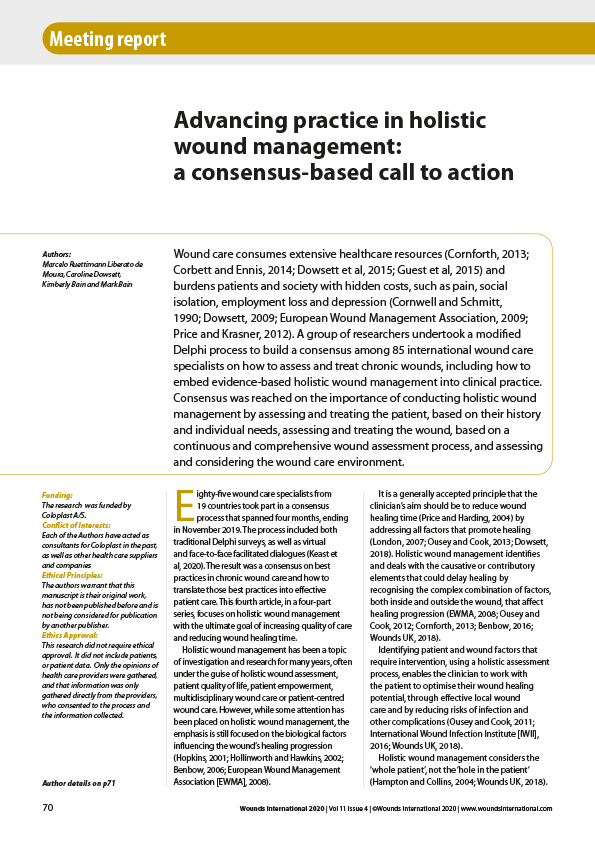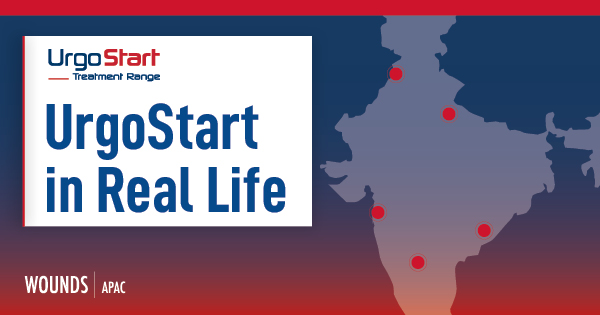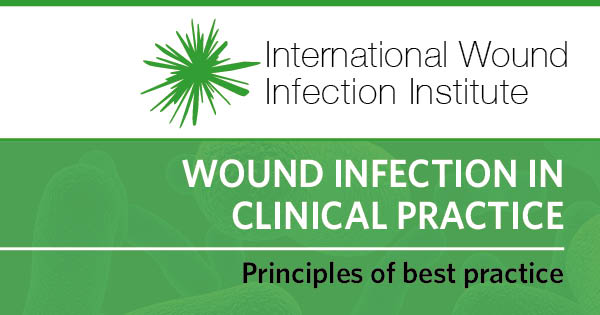Wound care consumes extensive healthcare resources (Cornforth, 2013; Corbett and Ennis, 2014; Dowsett et al, 2015; Guest et al, 2015) and burdens patients and society with hidden costs, such as pain, social isolation, employment loss and depression (Cornwell and Schmitt, 1990; Dowsett, 2009; European Wound Management Association, 2009; Price and Krasner, 2012). A group of researchers undertook a modified Delphi process to build a consensus among 85 international wound care specialists on how to assess and treat chronic wounds, including how to embed evidence-based holistic wound management into clinical practice. Consensus was reached on the importance of conducting holistic wound management by assessing and treating the patient, based on their history and individual needs, assessing and treating the wound, based on a continuous and comprehensive wound assessment process, and assessing and considering the wound care environment.







